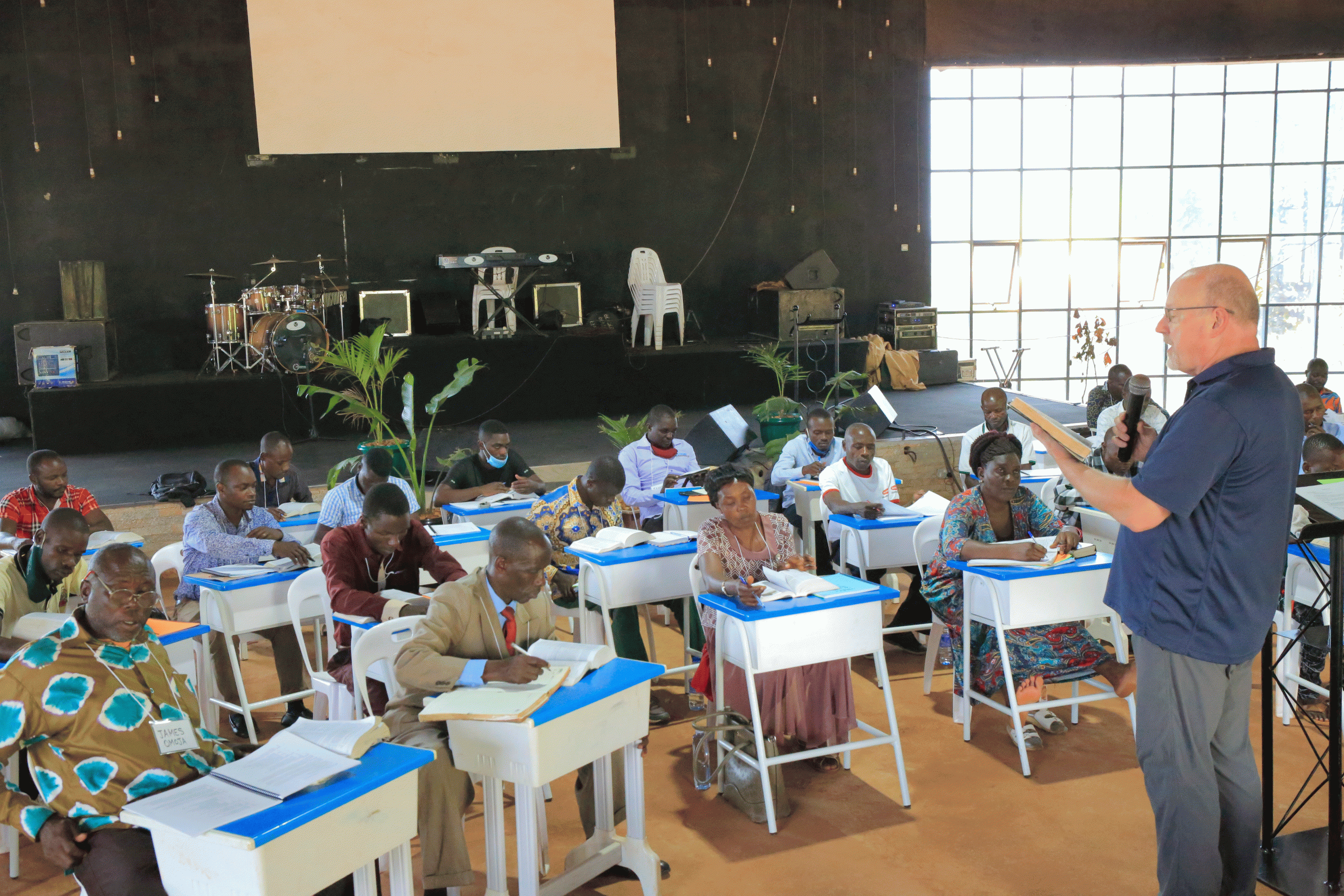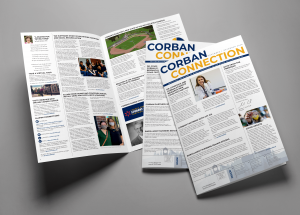Ministry Department Returns to Uganda
He was greeted by a chorus of children’s voices calling out, “Uncle Greg, Uncle Greg!” As they ran forward, ushering him into a home which had become so familiar to him the past few years, they showed all that they had learned since he had been gone: the practiced motion of tying shoelaces, new games invented during the pandemic, the rhythmic juggling of a soccer ball. It had been over a year since he had been back.
“Africa has become a second home for me,” says Corban Dean of the School of Ministry, Dr. Greg Trull. For Trull, Uganda has become not only a place of continual ministry, but of genuine community. And after an absence of over a year, he was finally back.
Since the beginning of the pandemic, the School of Ministry (SoM) had been unable to continue their twice-yearly trips to the heart of Africa to train local pastors. Corban’s Africa Training Partnership (ATP) began nearly ten years ago from the desire to support the boom of Christianity in Africa by equipping local pastors with the education to meet the increasing leadership need in African churches.
After the Ugandan government sent the country into immediate lockdown last spring, Corban’s in-person ATP plans were put on sudden hold. “The biggest challenge for our pastors was that they had very little contact with other leaders, especially if they didn’t have internet,” Trull says. “Many were feeling alone or only connecting with one or two people. And with public transportation out, they didn’t have any way to get around.”
Unwilling to abandon their pastors, Trull and the SoM shifted focus, finding new ways to meet their African students’ needs. Utilizing a dedicated YouTube channel and OneDrive file sharing, ministry faculty were able to teach Ugandan pastors via video in small groups led by ATP’s Ugandan director, Pastor Freddie Mukiibi. During the pandemic the pastors increased their meetings from the normal monthly to weekly sessions. Freddie travelled to each of the four regions every week to facilitate the trainings.
When travel from the U.S. to Uganda finally reopened this spring, Trull and fellow ministry professor, Dr. Sam Baker, were on one of the first flights over. “Our goal was to get back on track with our normal cohort system, being there twice a year with monthly meetings in between,” Trull says. With feet firmly on the ground, they began the work of reviewing coursework and course structures with their cohort of pastors. They touched base with site leaders, gathered feedback on each student’s distance learning experience, and began to formulate new ways in which they could best meet the changing needs of their students moving forward.
“We had pastors from the four regions meeting separately for sixteen months,” says Trull. “May was the first time having the whole group back together in the same place.” It was easy to see that the past months had been taxing, but the reunion was sweet. “It was fun to watch the joyful conversations,” Trull says. “The pastors recognized that we were coming back early, one of the first groups to return to the country. They appreciated Corban’s willingness to jump through hoops to come when we could have easily waited another six months.”
The extended effort of Corban’s SoM, not only in returning to Africa earlier than most, but in finding new ways to teach from a distance, made a tangible impact. Dr. Sam Baker was impressed by the resolve of his African friends. “There was an awe-inspiring sense of unity among our pastors,” he said. “I continue to be amazed at the incredible depth of passion for learning our pastors express. They are so engaged in the curriculum, collaborating with their fellow pastors, and utilizing their ATP training to equip the leaders in their churches. It was beautiful to see their unswerving commitment to the gospel and the Scriptures, even amidst very challenging settings.”
Along with starting two new classes, evaluating student learning progress, and refocusing the leadership component, Trull and Baker were able to have a broader discussion about the biggest needs facing each pastor. “For our Pallisa pastors, who minister in a remote region, we discovered for the first time that most of the leaders they are training don’t have Bibles. “They can’t afford them,” Trull recalls. “It’s really hard to teach people the Bible when they don’t have one. A tribal language Bible costs about ten dollars. It’s a need we can meet.”
Another aspect of service Corban provided was through a four-student team who joined Baker and Trull. The four Corban students, Andrew and Mariah Wheeler, and Josiah and Bailey Buehler, partnered with Children to Love to serve Ugandan communities by working with local orphanages, helping run day camps, providing computer literacy instruction and tutoring support at surrounding church-run schools, and engaging in door-to-door evangelism. Ministry majors Andrew and Josiah also had the unique opportunity to preach in churches in Kampala, working with translators for the first time as they shared the gospel.
“One of our leading partners expressed to both Dr. Trull and me how well-trained our students were in sharing testimonies, the gospel, Bible lessons, and words of encouragement in their various assignments throughout the trip,” says Baker. “He noted that no other university student group had ever served to the degree of excellence our Corban students exhibited. They were always well-prepared and ready to share at a moment’s notice.”
For Trull and Baker, rejoining their friends and second family in Africa was over a year in the making. A year’s worth of prayer, of watching travel restrictions, of recording weekly lecture videos, and watching familiar smiles from the measured distance of a computer screen. “God has really put it in our hearts that this is a ministry we should invest in, and it was hard being at arm’s length all of that time,” Trull says. “It was just so good to be back home.”


